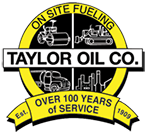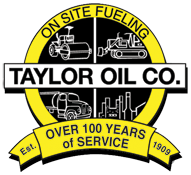Heavy construction equipment features large engines that run on fuel. As you can imagine, your fuel budgets has to be equally as large in order to accommodate this allocation. But if you’re not careful, those fuel expenses can reduce your profit margins — fast. Good news is, you can utilize practical strategies to save on fuel and thus on money. Here are tips for reducing fuel consumption in your heavy construction equipment.
1. Maintain Your Equipment
Poorly maintained equipment has to work harder to achieve the same result, which sucks up more gas. You’ll have to service your equipment regularly to boost fuel efficiency. This is why it’s critical to regularly maintain your equipment with regular cleaning, oil checks, and lubrication of all moving parts, as well as proper tire inflation.
Underinflated tires have high rolling resistance, which makes your engine work harder and use more fuel. Tell your drivers and operators to regularly check the tires and inflate them.
2. Hire Skilled Operators
Whether your equipment is owned by you outright or you rent it, your operators should have advanced skills and a detailed knowledge of every machine they work with. When they’re not well trained on the equipment, mistakes are made, which can boost fuel consumption.
One common mistake is to gear up at high RPMs. Seasoned operators, on the other hand, know to start the machinery at a low RPM, gradually increasing it to save fuel. Skilled operators will do their part to minimize fuel waste.
3. Choose Shorter, More Efficient Transport Routes
Don’t have a storage area on site? You’ll have to move the equipment every day where it can be safe when not in use. It may not sound like a lot, but the fuel used for this purpose can really add up. Consider transportation costs and the benefits of utilizing shorter and more efficient routes to get to your storage location. It’s best if you keep your machinery near the project site to cut down on transportation fuel costs.
4. Encourage Efficient Driving
Make sure your equipment operators know to drive efficiently, not only during transportation but within the site as well. They should not speed, accelerate quickly, or sharply apply the brakes – all of these can contribute to higher fuel consumption.
5. Use the Right Equipment
Some machines can handle many different operations; however, if they’re not intended to perform a particular application, they often consume more fuel. Make sure you’re using the right equipment for the right kinds of tasks.
6. Reduce Idling Time
As long as your machines are running, they are consuming fuel. Tell your operators to switch off the engines when not in use.
7. Use the Proper Fuel
Using the wrong fuel or fuel mixture means your engines produce less power, leading to increased fuel consumption in order to hit optimal performance. Combat this by only using the fuel recommended by the manufacturer.
8. Monitor Equipment
Use your telematics system to monitor equipment on your smart phone or tablet. This way, you’re able to quickly track factors like speed, idling time, fuel consumption, and sharp braking. Even when not on site, you’ll be able to act appropriately when there’s an alert like a fuel consumption spike.
Heed these tips to control fuel usage in your heavy construction equipment. Taylor Oil offers mobile and on site fueling to reduce the transportation time your fleet has to go through to get fuel. Call us today for a free quote!


